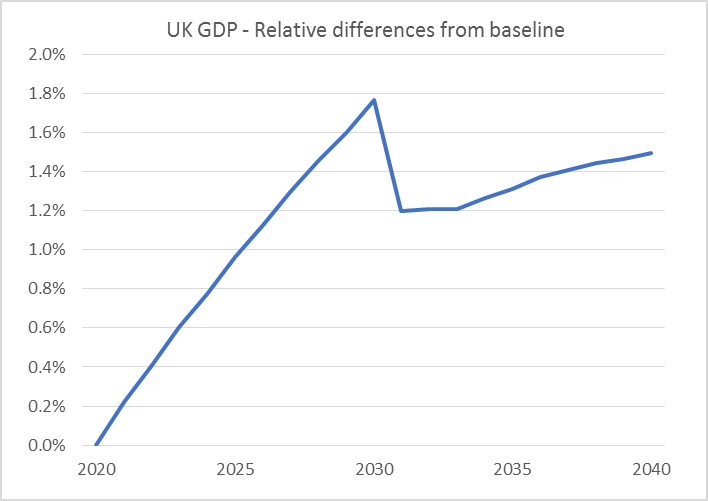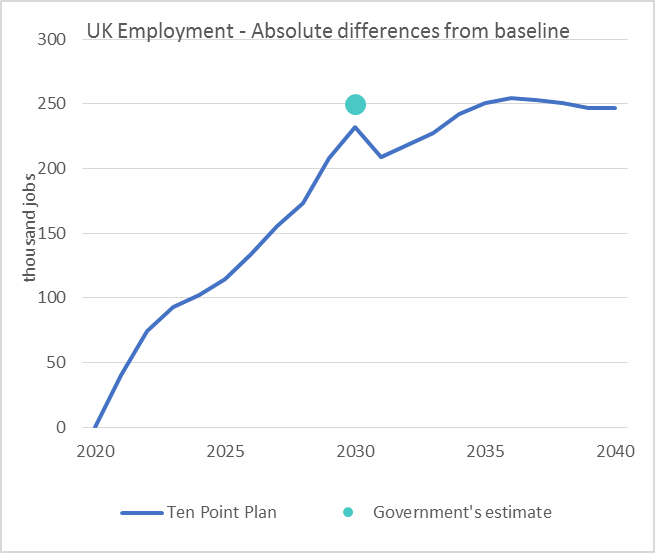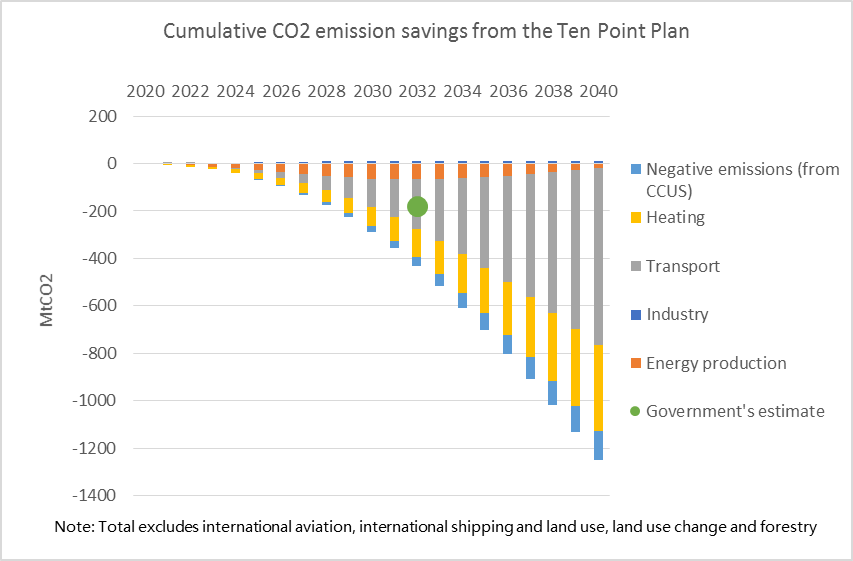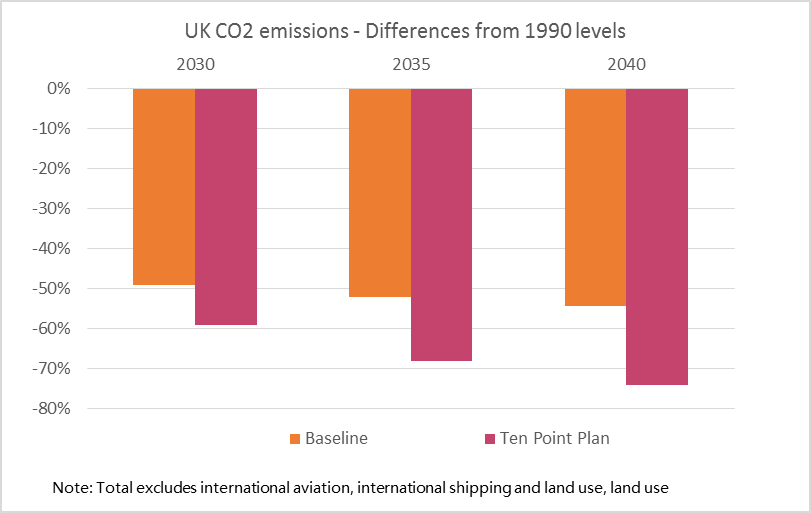
4 December 2020 – Eliot Whittington presents a new analysis with Cambridge Econometrics that suggests the government's plan to accelerate the Green Industrial Revolution will not yet put the country on track to meet its net zero goals.
Can Britain – home of the first industrial revolution – also play host to a second, ‘green’ industrial revolution? This is the question that the Prime Minister sought to answer with the announcement of his Ten Point Plan setting out measures to transform swathes of the UK economy.
With this announcement, Boris Johnson unveiled a clear commitment to the green economy that is virtually unprecedented in its scale and breadth. Covering the whole economy, and providing billions in public funding, this plan promises to support British innovation, unlock investment and deliver better homes, cleaner air and a stronger economy.
Founded to communicate the case that climate action is not only essential for security and stability, but also can and should be well aligned with future economic opportunity, The Prince of Wales’s Corporate Leaders Group (CLG) has positively welcomed the Prime Minister’s plan as an essential step forward. The CLG believes it provides firm foundations on which to continue to build a stronger, greener and more inclusive UK economy.
This is why we wanted to understand the full implications of the plan, and so commissioned Cambridge Econometrics to explore the economic, employment and emissions impacts of the policies within it. Their analysis shows that, just as the government says, the Ten Point Plan will create jobs and save emissions, while growing the economy. They also show that while the Ten Point Plan will put the UK on track for its current 2030 climate target, more will need to be done to reduce emissions further and put the UK on track to meet its 2050 target of net zero emissions.
Firstly, it is worth looking at the impact on the whole economy of the Ten Point Plan. By supporting private investment and reducing the UK’s dependence on fossil fuel imports, the policies contained in the plan clearly generate additional economic growth – delivering an economy that is almost 1.8 per cent bigger than baseline expectations, or more than £40bn larger that it would be otherwise.

Unsurprisingly, this increased economic activity also translates to increased employment. Cambridge Econometrics’ modelling effectively bears out the government’s analysis of around 250,000 new jobs being created over the next ten years, and also shows that these jobs are not going to disappear – but will remain over the following decade.

On emissions there is also great progress. The analysis shows that the Ten Point Plan will deliver significant emissions savings over the next decade and beyond, cutting over 420 million tonnes of CO2 by 2032 – significantly more than the 180 million tonnes the government estimates. The most effective policies and measures are the increased commitment to offshore wind, and the ban on internal combustion engines, both of which will dramatically reduce UK emissions.

Currently we believe the UK is on track for a less than 50 per cent cut in emissions from the 1990 levels in 2030. The UK currently has a 2030 target of a 57 per cent cut. The policies in the Ten Point Plan alone clearly put us on track for this target, delivering cuts that by 2030 would deliver a nearly 60 per cent reduction from 1990 levels.

Unfortunately, as the CLG has argued recently, the UK’s current 2030 target is insufficient to put us on track to achieve net zero by 2050. Our analysis is that a target of at least 70 per cent would be needed if the UK is to match the global ambition of halving 2018 emissions by 2030 which would be in line with keeping 1.5°C of warming in reach.
In any case the signs are good that the Prime Minister is about to commit the UK to a stronger 2030 target as he announces the new UK Nationally Determined Commitment (NDC) as required by the UN climate change process. As the Prime Minister does so he can feel confident based on this analysis that his Ten Point Plan has gone a long way to delivering on that new, stronger target.
He can also feel confident that those measures and actions will support the UK economy, driving investment and innovation while creating jobs.
As the government builds on the Ten Point Plan with other policies and measures it has promised to deliver – such as the Energy White Paper, the Transport Decarbonisation Plan, the Heat and Buildings Strategy, the Tree Strategy and more – it will need to go further and build on its existing announcements. Industrial revolutions take more than a single set of policies, no matter how impressive.
But as it does so it will continue to receive strong support from the business community that knows that the UK can and must be a leader in the zero carbon economy of the future. A new green industrial revolution is very much within reach, and while business is working hard to deliver it, it will look to see the same clear and ongoing commitment from government.
First published in BusinessGreen on 1 December 2020.





